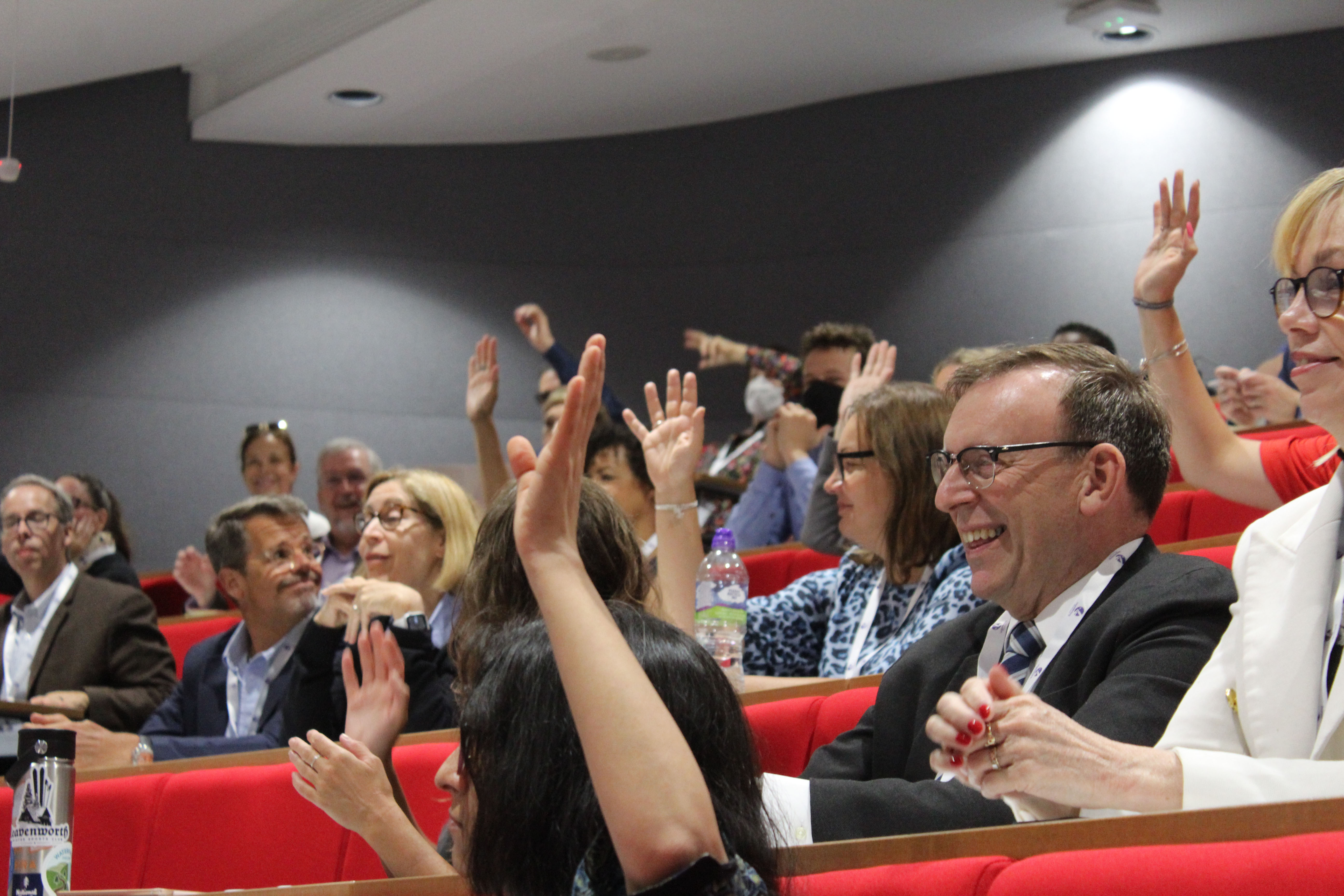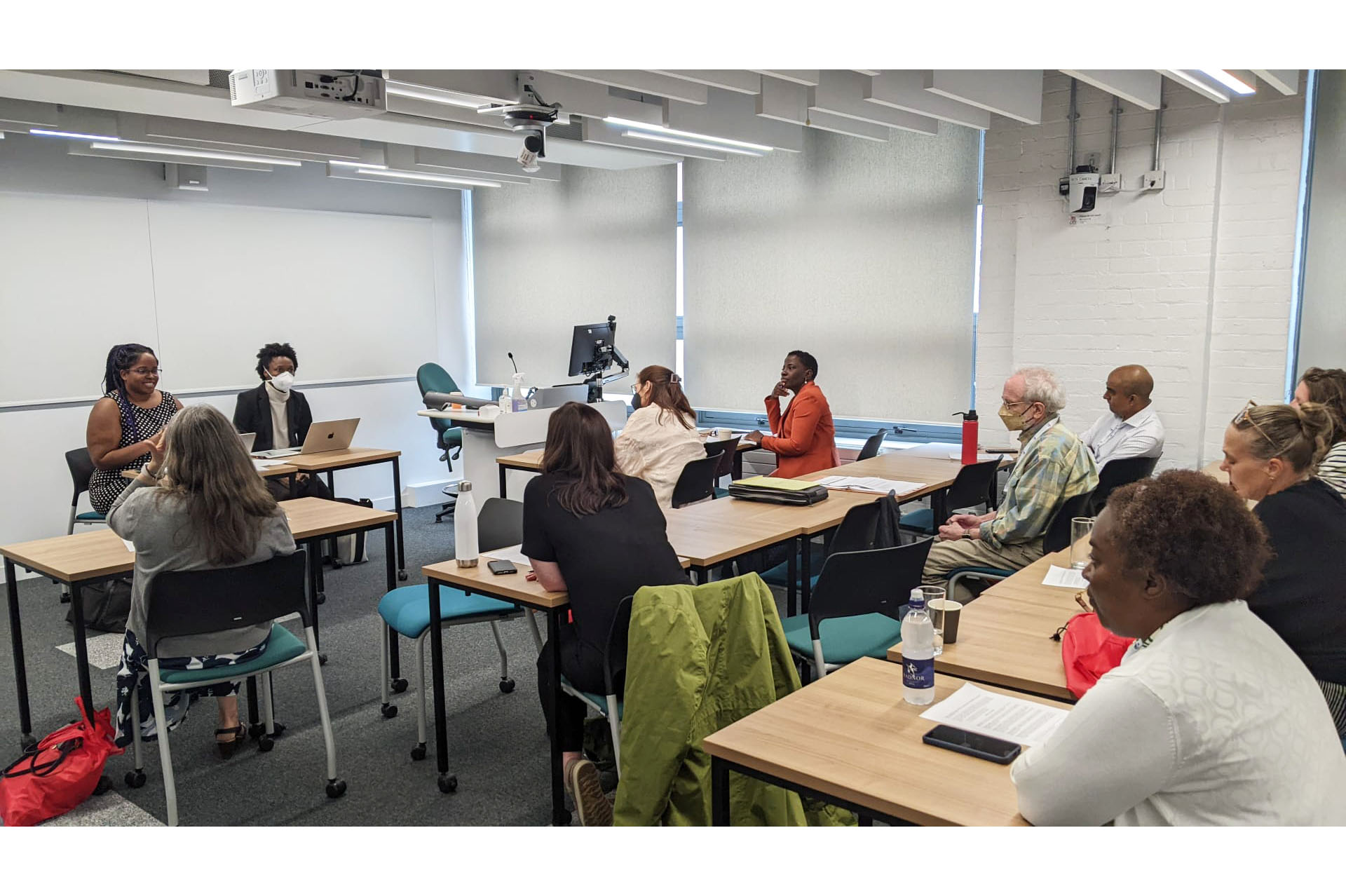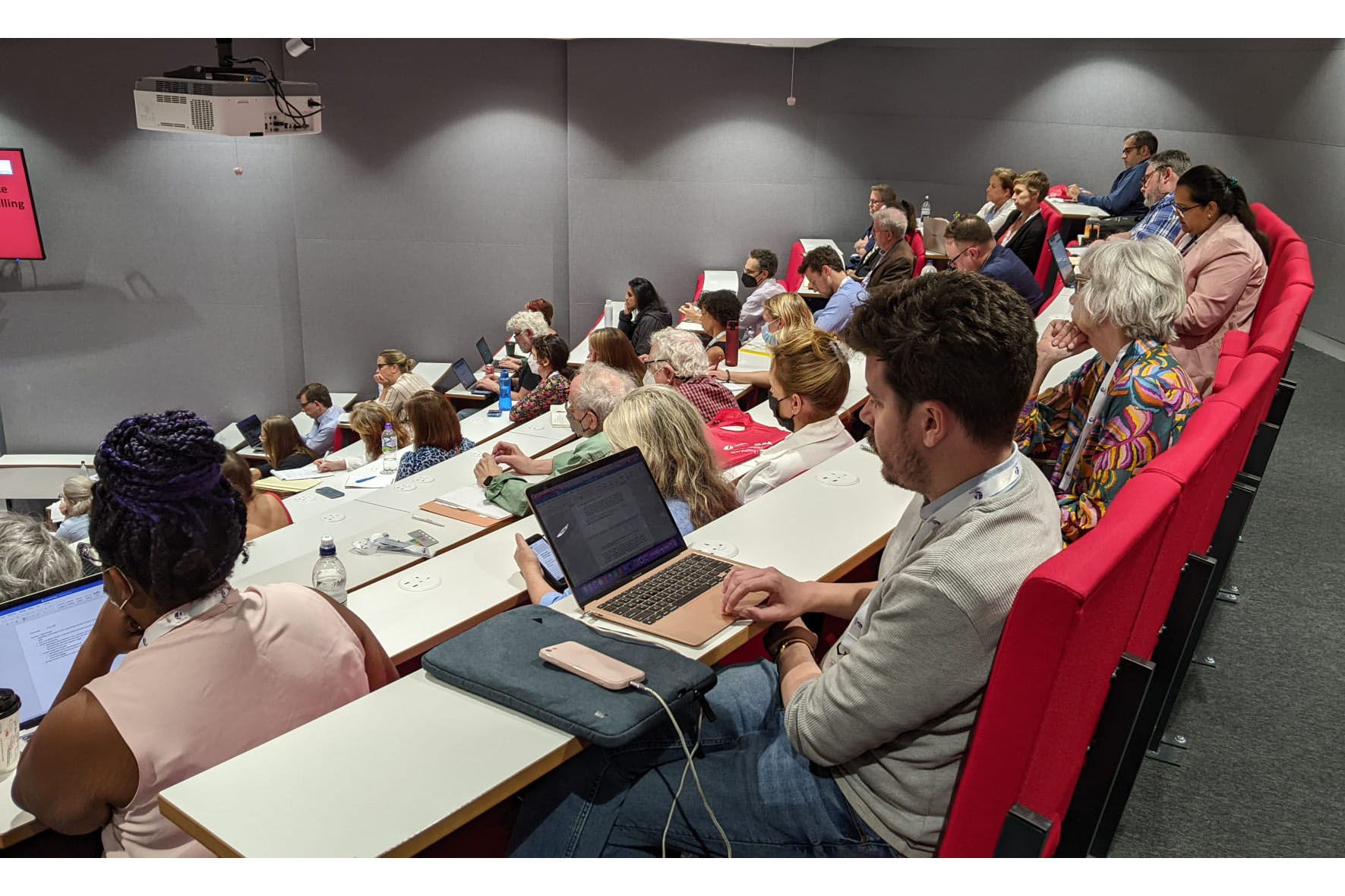Topics ranged from the ethics of applied legal storytelling, narratives of professional identities and reflection, race-salient language and indigenous rights and sovereignty.
By City Press Office (City Press Office), Published
 Marcus Soanes of The City Law School, alongside his US-based co-chairs, Professor Ruth Anne Robbins (Rutgers Law School), Professor Kimberly Holst (Arizona State University) and Professor Kristen Tiscione (Georgetown University) brought the Ninth Biennial Conference on Applied Legal Storytelling to City, University of London from July 26th to 28th 2023.
Marcus Soanes of The City Law School, alongside his US-based co-chairs, Professor Ruth Anne Robbins (Rutgers Law School), Professor Kimberly Holst (Arizona State University) and Professor Kristen Tiscione (Georgetown University) brought the Ninth Biennial Conference on Applied Legal Storytelling to City, University of London from July 26th to 28th 2023.
The conference was attended by over 100 academics, judges, lawmakers, practitioners, and other professionals, and is part of a joint venture with the United States’ Legal Writing Institute and Clinical Legal Education Association.

The series was started by Professor Emeritus in The City Law School, Robert McPeake, and the ninth conference was the inaugural event for the newly launched Legal Practice Hub. As well as US and UK jurisdictions being well represented, there were speakers from across the world including Singapore, Belgian, India, and Qatar.
The presentations, panels and posters evidenced the power, use and abuse of narration in law, legal education and practice as well as advocacy and legal activism.
Robert and Marcus were invited to deliver the keynote speech which addressed the role of socio-economic power – and its lack – in the criminal trial, the press and popular discourse using the Madeleine McCann and Shannon Matthews child victim cases studies.

They also took some time to state distinctions between fiction and storytelling with the aid of Oscar Wilde and Shakespearean scholarship, thus foregrounding the unique contributions of the legal storytelling discipline.

Presented with such a rich sharing of research, scholarship and real-life experience, it is not possible to summarise the whole conference. However, topics ranged from the ethics of applied legal storytelling, narratives of professional identities and reflection, legal linguistics in campaigns and judgments on the US Supreme Court’s Dobbs decision and race-salient language, indigenous rights and sovereignty, employing AI to compose compelling human stories, as well as centring clients’ stories in clinical and courtroom settings including child victims of sexual abuse, youth offenders, and asylum appeals.
All of that said, the prize for the most intriguing session title must go to: ‘Visual Storytelling and Constitutive Rhetoric in French Wine Labelling’.
Without doubt, all stages of law creation, enforcement, application and challenge and pedagogy received attention across a range of legal areas: criminal, family, public and civil law.
